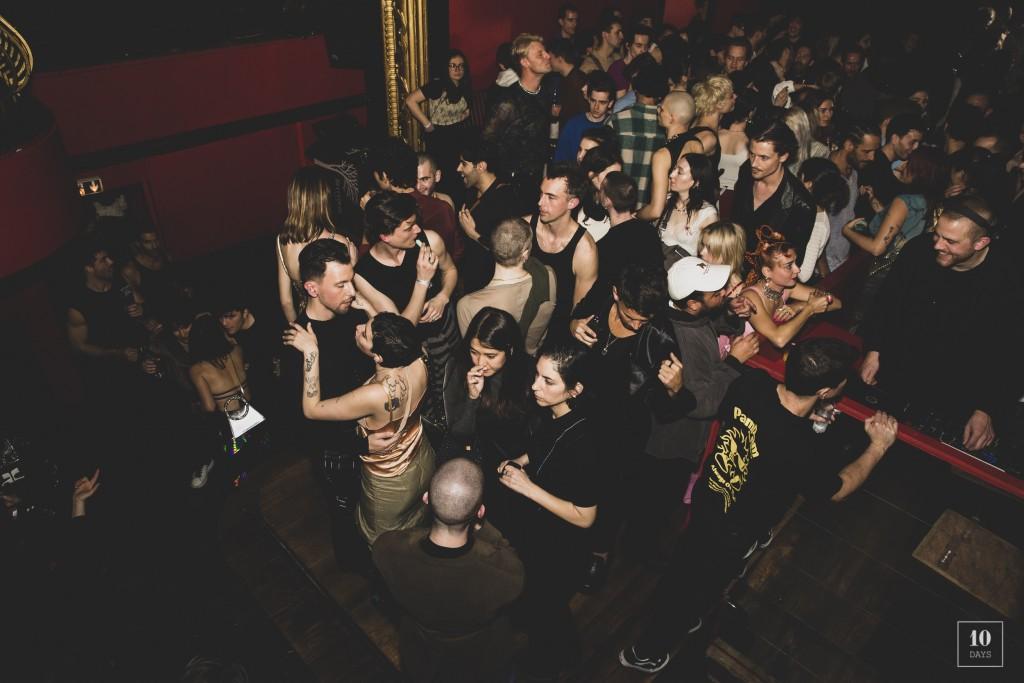
人們常常對排他性著迷,無論是在時尚、娛樂還是社交活動中。私人聚會等獨家活動長期以來一直被視為社會地位的象徵,是區分富人和窮人的一種方式。例如,在時尚行業,時裝秀或 VIP 購物體驗等獨家活動備受追捧,因為它們可以讓您在最新趨勢和款式廣泛流行之前一窺最新趨勢和款式。
然而,傳統的獨家活動也有變得孤立的風險,由於參加者的範圍有限,新的想法和觀點不太可能出現。這就是開放活動的概念變得特別有趣的地方。與工業革命的標準化形成鮮明對比的是,開放活動體現了威廉・莫里斯 (William Morris) 工藝美術運動的精神,強調個人工藝和創造力。這些活動旨在讓每個人都能參加,無論其社會地位如何,它們為人們提供了一個聚集在一起分享想法、促進社區意識的空間。
開放活動的想法可以被視為對傳統排他性概念的挑戰,它有可能打破通常根據社會地位劃分人們的障礙。通過擁抱藝術和手工藝運動的理想並促進創造力,開放活動可以鼓勵交流新的和創新的想法,培養一個充滿活力和包容性的社區。
雖然獨家活動可能繼續對某些人具有一定的吸引力,但開放活動的興起表明人們對包容性和協作的興趣越來越大。隨著 partiful.com 等新項目的發展,獨家活動有一天可能會變得更容易被發現並向更廣泛的參與者開放。隨著 web3 的概念變得越來越普遍,獨家活動和開放活動之間的界限可能會變得更加模糊,從而為人們聚在一起分享他們的想法和想法創造新的機會。
總之,獨家活動和開放活動之間的區別反映了更深層次的社會鴻溝,這種鴻溝通常根據人們所感知的社會地位將人們分開。雖然獨家活動可能有其吸引力,但開放活動有能力促進包容性並鼓勵交流新的和創新的想法。隨著我們的世界不斷發展,看看獨家活動和開放活動之間的界限如何繼續被重新劃定,以及排他性和包容性的理想如何在未來幾年發揮作用,將會很有趣。
People often have a fascination with exclusiveness, whether it be in fashion, entertainment, or even social events. Exclusive events, such as private parties, have long been considered a symbol of social status, a way to separate the haves from the have-nots. In the fashion industry, for example, exclusive events such as runway shows or VIP shopping experiences are highly coveted, as they offer a glimpse into the latest trends and styles before they become widely available.
However, traditional exclusive events also run the risk of becoming insular, with new ideas and perspectives being unlikely to emerge due to the limited range of attendees. This is where the concept of open events becomes especially intriguing. In contrast to the standardization of the Industrial Revolution, open events embody the spirit of William Morris' Arts and Crafts movements, which emphasized individual craftsmanship and creativity. These events are designed to be accessible to everyone, regardless of their social status, and they provide a space for people to come together and share ideas, promoting a sense of community.
The idea of open events can be seen as a challenge to the traditional notion of exclusiveness, and it has the potential to break down the barriers that often divide people based on social status. By embracing the ideals of the Arts and Crafts movements and promoting creativity, open events can encourage the exchange of new and innovative ideas, fostering a dynamic and inclusive community.
While exclusive events may continue to hold a certain allure for some, the rise of open events suggests that there is a growing interest in inclusivity and collaboration. With the growth of new projects, such as partiful.com, exclusive events may one day become more discoverable and open to a wider range of attendees. And as the concept of web3 becomes more prevalent, it is possible that the line between exclusive and open events will become even more blurred, creating new opportunities for people to come together and share their thoughts and ideas.
In conclusion, the distinction between exclusive and open events reflects a deeper societal divide, one that often separates people based on their perceived social status. While exclusive events may have their appeal, open events have the power to promote inclusivity and encourage the exchange of new and innovative ideas. As our world continues to evolve, it will be interesting to see how the ideals of exclusiveness and inclusiveness play out in the years to come.